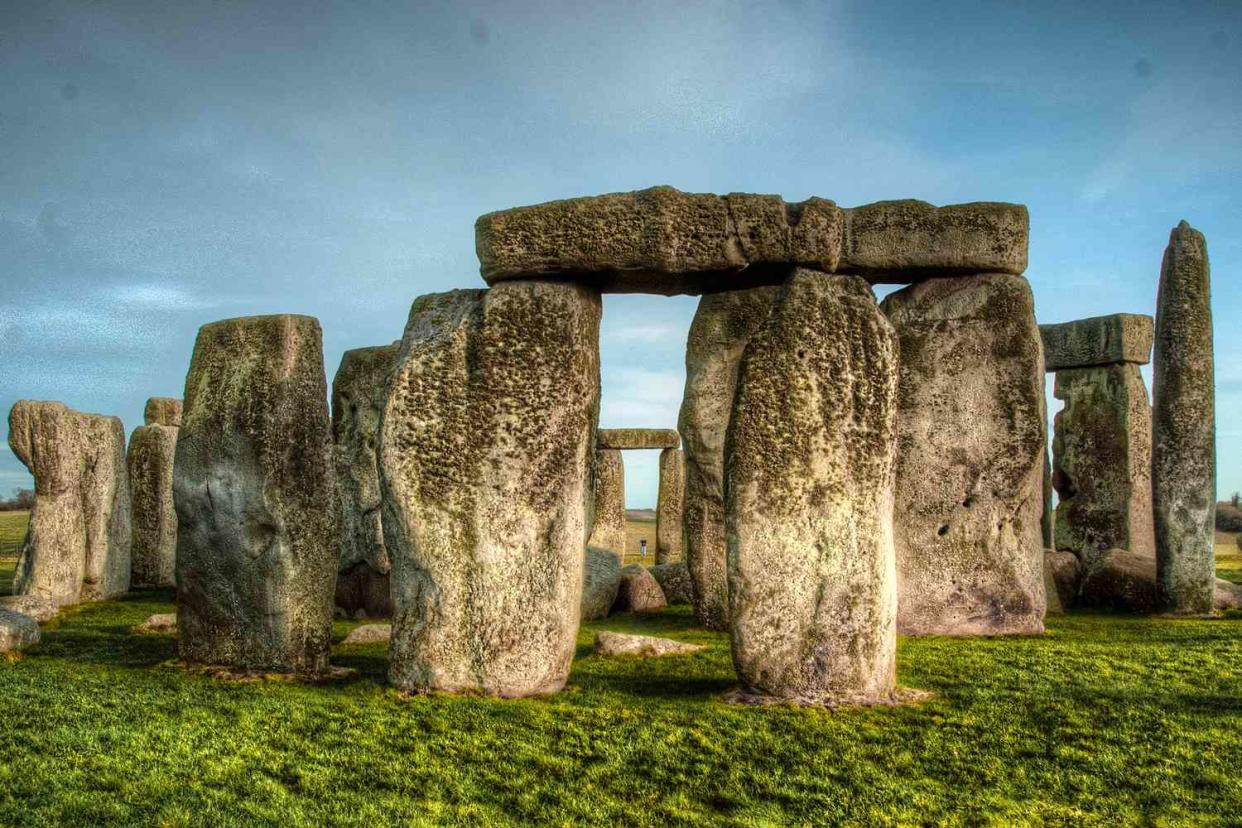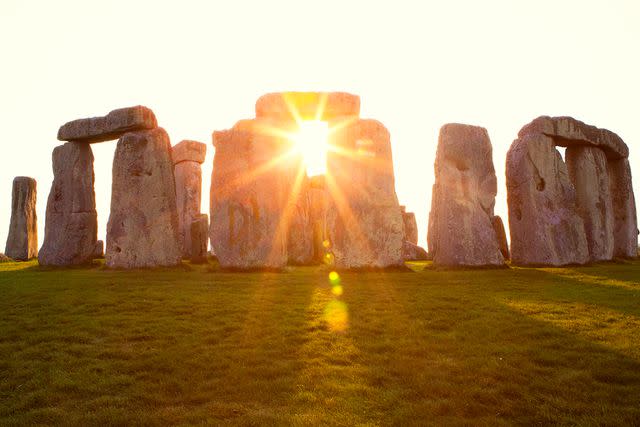A Mystery of Stonehenge May Finally Have Been Solved, But It Raises New Questions, Researchers Say
The new findings suggest that the “Altar Stone" at the center of the mysterious monument didn't come from Wales, as was previously thought

Getty
StonehengeA new study challenges the origins of Stonehenge.
In a new study published on Wednesday, Aug. 14, a group of researchers claim that the giant "Altar Stone" of the famed structure in Wiltshire, England, can be traced to northeast Scotland.
The existence of the prehistoric monument has long remained a mystery despite being one of the most popular landmarks in the world. Over the years, several researchers have tried to figure out where it originated, with some speculating that it came from Wales.
However, according to a study published in the scientific journal Nature, researchers have suggested that the massive stone at the heart of Stonehenge was actually transported from Scotland, citing similarities between the core stone of the structure and the old red sandstone of Scotland's Orcadian Basin.

jessicaphoto/Getty
StonehengeThe findings also suggested that the rock was brought to England by sea via boat, given the prior knowledge that Neolithic people transported "cattle and goods" between the two countries.
The distance between the two countries is roughly 400 miles, which would take about eight hours by car.
Related: Climate Protestors Arrested for Spraying Stonehenge in Orange Paint
The research was led by a Ph.D student Anthony Clarke, who revealed that he is from Wales in a recent interview with BBC. Since that is where the altar stone was previously speculated to have come from, he joked that he has disappointed his compatriots.
"I don’t think I’ll be forgiven by people back home," he told the outlet. "It will be a great loss for Wales!"
Reflecting on what the study says about society during the early time period, Clarkes noted that the construction of Stonehenge "seems to be this great British endeavor involving all the different people from all over the island.
However, as the door to one mystery closes, another opens.
“The work prompts two important questions: how was the Altar Stone transported from the very north of Scotland...and, more intriguing, why?” Dr Robert Ixer, from University College London, remarked to the outlet.
Never miss a story — sign up for PEOPLE's free daily newsletter to stay up-to-date on the best of what PEOPLE has to offer, from celebrity news to compelling human interest stories.
In a separate conversation with NPR, Clarke opened up about his thoughts on journey from Scotland to England in the prehistoric days, saying it wouldn’t have been an easy feat.
"Spare a thought for our Neolithic ancestors, where the heavily forested landscape, rivers, bogs and mountains — it would have been formidable, if not impossible,” he said, adding that people may never uncover the exact details about the epic relocation.
For more People news, make sure to sign up for our newsletter!
Read the original article on People.
